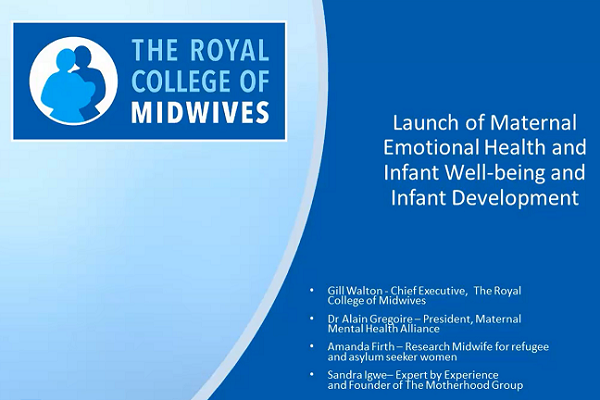“The mental health and wellbeing of pregnant and new mothers is now acknowledged to be as important as their physical health”
The Royal College of Midwives recently launched their updated Maternal Emotional Well-being and Infant Development Guide. It focusses on information and advice on parental mental health, the parent-infant relationship, and infant development. It also summarises key evidence and implications for practice and includes practical suggestions on the key role of midwives and how all parents can be supported.
Along with this new publication, RCM have published webinars that discuss how maternity services can be improved, and recognising the contributions third sector organisations can offer in maternity care.
Evidence shows that women are more at risk from suffering mental health problems during pregnancy, than any other time. On the first webinar, Sandra Igwe, from The Motherhood Group, shares her own experiences as a first-time mum and what led her to set up a support network for black mothers. She highlights the lack of trust in healthcare professional that black mothers often feel. This stems from many factors, in particular the missed signs of depression.
“I think the communication between midwives, healthcare services and black mothers need to be bridged together because I don’t believe that there has been enough effective communication to build that relationship that would encourage the trust, that would encourage the bravery and the strength to step out and speak and ask for help.”
Sandra Igwe, The Motherhood Group
Peer support can play a huge role in bridging this divide. We often hear of professionals and mothers being unable to build trusting relationships, for a multitude of reasons, and this is where peer support can contribute in ways that professional services cannot.
Peer supporters follow a mother’s whole journey, starting in pregnancy and continuing through labour, birth and the first few months of their baby’s life, providing a continuum of care throughout. Through becoming a trusted intermediary, they can support and empower the mother to understand their choices, to ask questions and help to overcome communication barriers.
As Alain Gregoire from the Maternal Mental Health Alliance states:


